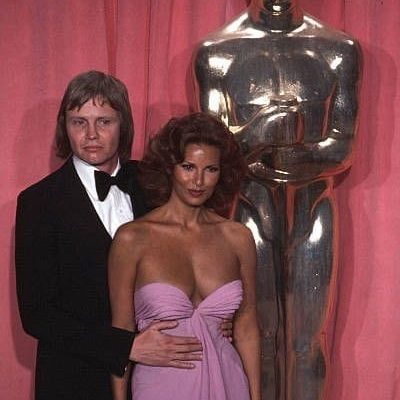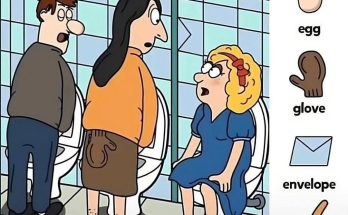t is really nostalgic to look at vintage Oscars pictures, especially those from the 1970s. These pictures provide a window into a time when the Academy Awards were a dazzling show that enthralled millions of people worldwide, rather than just an industry event.

The stars of that era were virtually legendary, and their presence at the Oscars gave the event a certain fascination that seems to have waned with time. This charm was a combination of mystery and elegance.
The photographs from this era, particularly those from the middle of the 1970s, capture a time when everything was different and Hollywood appeared impenetrable, but its stars were well-known and brought substance and style to the big screen.
1975 is one such year that sticks out. Even after several decades, the 47th Academy Awards remain a notable occasion because of the glitz, political comments, and scandals that surrounded the event. The year marked a pivotal moment in American history.

Social movements were changing the country, the Vietnam War was coming to an end, and Hollywood was becoming more and more torn between art and activism. As a result, the 1975 Oscars represented the cultural conflicts of the day rather than just honoring movies.
Dustin Hoffman was one of the night’s key players. Hoffman wasn’t in the mood to celebrate his nomination for the role of Lenny Bruce in the biographical movie Lenny. Hoffman, who is well-known for being an outspoken opponent of the glitz and glamour of the Academy Awards,
called the ceremony “ugly” and “grotesque,” likening it to a pageant for beauty. Even though his performance had won him a nomination for Best Actor, his contempt for the evening was clear in the way he disassociated himself from the glamour that surrounding him.

Hoffman’s judgmental demeanor created some uncomfortable situations. Hoffman’s attitude was mocked by the show’s presenter, Frank Sinatra, who joked that if Hoffman prevailed, “he’s going to have a friend pick it up for him—George C. Scott.
” The allusion was to Scott’s well-known denial of his 1971 Best Actor award for Patton. But the crowd didn’t find Sinatra’s joke funny, which was an indication that the Oscars’ lightheartedness was beginning to collide with the times’ growing seriousness.

The tension was heightened by Sinatra’s lackluster performance on stage. Known for his charisma, Sinatra had trouble delivering his lines, looked a little inebriated, and made a number of embarrassing allusions to his Italian-American ancestry.
Even reviewers, such as Roger Ebert of the Chicago Sun-Times, expressed their disapproval of the crowd, pointing out that Sinatra was jeered at one point, which is practically unheard of for the well-liked singer.

Moments like the one that transpired during the 1975 event frequently refute the idea that the Oscars were less political in earlier decades. The director of Hearts & Minds, a documentary on the Vietnam War, Bert Schneider, walked the stage to accept the Best Documentary prize. His acceptance speech thrust the Vietnam War, which had split the nation for years, squarely into the public eye.

Viet Cong Ambassador Dinh Ba Thi congratulated the American anti-war movement “for all they have done on behalf of peace” in a telegram that Schneider read aloud. Not everyone in the audience was happy about this event, which was unusual at the Oscars. Longtime Vietnam War supporter Bob Hope was especially offended by Schneider’s remarks.
Hope sent a reply within an hour, which Sinatra delivered to the crowd, stating that the Academy disapproved of the political remarks made during the performance. One of the evening’s co-hosts, Shirley MacLaine, publicly chastised Hope for this, emphasizing that she did not speak for the Academy as a whole.

With a caustic, “Thank you, Frank, you old Republican,” Warren Beatty also added his voice, establishing a distinct division between Hollywood’s more progressive voices and the industry’s elite.
Ingrid Bergman’s acceptance speech for Best Supporting Actress was one of the evening’s rare moments of grace amid the political tensions. Bergman was getting a standing ovation for her performance in Murder on the Orient Express, despite the fact that she had been shunned by Hollywood years before for her liaison with director Roberto Rossellini. Bergman was a legendary figure at the age of 59, and many people saw her victory as a moment of Hollywood admitting its past wrongdoings and a kind of atonement.

Bergman was modest in her acceptance speech, saying that Valentina Cortese, another nominee, was more worthy of the prize. Both her own humility and the collective shame Hollywood still harbored over how it had treated her at the height of her controversy in the late 1940s were evident in her statements.
However, the seemingly unremarkable picture of Jon Voight and Raquel Welch at the 1975 Oscars may be the most memorable image of the event, not the victors or the political speeches. The two celebrities were in charge of announcing the Best Cinematography prize as presenters that evening.

Voight stood next to Welch, who was stunning in a deep pink gown, wearing a classic black tuxedo. Together, they were the epitome of Hollywood royalty and represented the glitz of the day.
However, this picture has become controversial in recent years. Voight’s position has been closely examined by social media users, with some arguing that his grip on Welch is out of date by today’s standards. “Jon’s looking like a creep,” said one reviewer, while another surmised that Welch seemed uneasy.

However, a similar number of people supported the image, pointing out that in the 1970s, social mores were different. One individual said, “You have no opinion if you weren’t around then.” The disparity in responses illustrates how our cultural perspective has changed over time, with contemporary sensitivities frequently conflicting with historical practices.
The 47th Academy Awards was a night of contrasts: personal victories and political declarations, glitz and embarrassment. It was a night when the more vocal, progressive voices of the new generation took the stage alongside the legendary figures of classic Hollywood. The event itself documented a moment of transformation, but the movies screened that evening, such as The Godfather Part II, were eternal.

The pictures from that evening still have an impact on us today, not just because they are beautiful but also because of what they tell us about Hollywood, politics, and society in those days. Glamour and activism were starting to clash on the most glitzy platform in the world, and the 1975 Oscars are still seen as a window into a time that was halfway between the old and the new.




